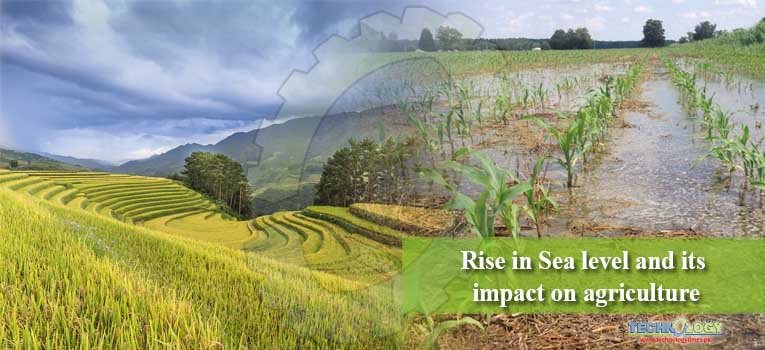Sea level rise refers to long term average sea level rise relative to the local land level. Currently sea level is rising more rapidly at the rate of 0.12 inch per year. Sea level rise is primarily due to global warming.
 A warming climate can cause sea water to expand and ice cover to melt. Antarctic ice sheet covers 5.4 million Sq. miles would add 190 ft to the sea level. The Green land ice sheet cover 80% surface of green land would add 21.7 feet to the sea level.
A warming climate can cause sea water to expand and ice cover to melt. Antarctic ice sheet covers 5.4 million Sq. miles would add 190 ft to the sea level. The Green land ice sheet cover 80% surface of green land would add 21.7 feet to the sea level.
In the case of total melt scenario of all ice sheet and ice cap and glaciers the total rise would than peak at more than 196 feet above today sea level. There is still much responsible debate about the maximum warming that might occur it will be the accepted that further global warming and as an inevitable result higher sea level can be expected in the years, decade, and centuries ahead.
Impact of sea level on Agriculture
The direct impact of sea level rise on agriculture is on coastal area. It can cause destructive erosion, wet land flooding, aquifer and soil contamination and lost habitat or plants.
The rise in sea level will also increase flood risk rise ground Walter table and prolong water lodging. Consistently agricultural yield seriously reduced.
It is destruction of primary food resources such as agricultural crops aquaculture are likely to be borne out as shortage of staple food it conflicts associated with issues of food and fresh water security.
Sea Level rise would seriously impact the agricultural usable water. Glacial cycling is to built up ice on land decreasing due to global warming. Ice sheets are melting and accelerated its declining; this change may cause shortage of fresh water in countries above the sea level.
Sea level rise indirectly depend upon on rainfall pattern. The area lying near the equator excessive rainfall. The area lying far from equator receive very low amount of rainfall and become desert.
Authors: Dr. Mubashar Nadeem,Muhammad Adnan, Akash Munawar, Mubashir Hussain, Sanaullah Khan and Hassan Noorani
Department of agronomy, college of agriculture, university of Sargodha